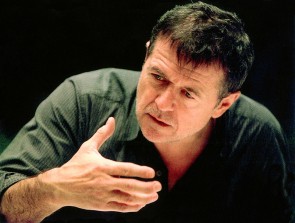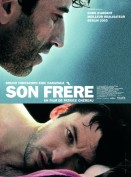
Patrice Chéreau
Films in our catalogue
His Brother
Thomas is dying. He accepts it. He's chosen to await his death here, in this house by the sea, the house of his childhood. I'm with him. It's still summer. I never realized people could die in the summer. I thought death was something that always happened (...)
Biography
A much heralded French theater and opera director, Patrice Chereau has increasingly been directing feature films, finding his widest audience with "La Reine Margot/Queen Margot" (1993), adapted from the Dumas novel about the politically expedient marriage between the title character and Henry de Navarre in an attempt aimed at quelching the Protestant tide in France. Chereau began directing for the stage in 1964 with a production of "L'Intervention" by Victor Hugo, then became the director of le Theatre de Sartrouville for three years, where he excelled with productions of Moliere classics. In 1969, Chereau made his debut as a director of opera with a production of Rossini's "L'Italienne a Alger" in Paris, which led to his six year (1971-77) as co-director of Le Theatre Nationale de Paris. He took time away from these duties to stage a production of the Wagner opera "L'Anneau du Nibelung" at the 1976 Bayreuth festival, which brought him personal attention. More recently, Chereau directed a 1988 production of "Hamlet" for the Theatre des Amandiers in Nanterre, France and a 1991 version of Botho Strauss' "Le Temps et la chambre." In opera, he has been associated with the works of Alban Berg, notably "Lulu" (1979) and "Wozzeck" (1992). Chereau segued to films with "La Chair de l'orchidee" (1974), starring Charlotte Rampling in a tragic chase melodrama. Simone Signoret headlined "Judith Therpauve" (1978), a film about the difficulties of a country newspaper. Chereau linked with Claude Berri, who produced "L'Homme Blesse" (1983) and "Hotel de France" (1987), the latter likened to the American "The Big Chill" in that it focused on 10 friends who meet for a reunion. Chereau spent several years researching "Queen Margot", which he also co-wrote with Daniele Thompson, and which increased Isabel Adjani's international fame. He also occasionally acted both on stage (Shakespeare's "Richard II" 1969) and in films. His most prominent roles in the latter medium include portraying the historical figures Camille Desmoulins in Andrzej Wajda's "Danton" (1982) and Napoleon in Youssef Chahine's "Al-Wedaa Bonaparte" (1985). American audiences might recognize him as General Montcalm, the leader of the French forces who allows Mugua (Wes Studi) to swing his savage hand, in Michael Mann's "The Last of the Mohicans" (1991).
